Sometimes bloggers sort of disappear from their work, and I don't want to do that. For health reasons, I am suspending publication of my blog until further notice. I will resume posting as soon as possible and will notify my subscribers at that time. Everyone enjoy a wonderful holiday season! RJ [Below c1956]
|
0 Comments
MY BOOK WORLD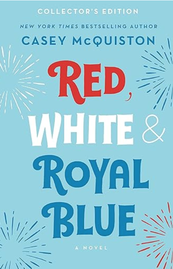 McQuiston, Casey. Red, White & Royal Blue. New York: St. Martin’s, 2019. In many ways, this is a commercial romance novel, but for once, it is about two young men, not a heterosexual couple. And not two ordinary men, but one is His Royal Highness, Prince Henry of the UK, and the other is Alex, the First Son of the United States (FSOTUS)—whose mother is elected the first female president. In a way, the two men have known each other, at least by sight, since they were children. The inciting incident, as how-to-write-novels will tell, you occurs when Alex attends the royal wedding of Henry’s brother in the UK. During a tussle, the two fall into the £75,000 wedding cake. To make amends, Alex flies back to the UK for photo ops to demonstrate to the public how the two really are fine friends after all. While visiting a primary school where Prince Henry (BTW he’s gorgeous, like a young Prince William) volunteers. Alex is impressed with the prince’s sincere largesse, but when firecrackers are mistaken for gunfire, the two are shoved into a dark, cramped, custodial closet (so symbolic), where once again they argue. Sometime later, New Year’s maybe, Henry sails the Atlantic (by air) to appear at Alex’s party held at the White House. At one point, Henry feels left out and ventures onto the snow-covered lawn, and Alex eventually joins him, where Henry plants a big one on Alex’s mouth: the real inciting incident, perhaps. Alex, also a handsome physical specimen combining the best of his mother’s Anglo and his father’s Mexican heritage, is stunned but suddenly realizes he may be bisexual. All I’ve describe so far, of course, is plot, but McQuiston adeptly creates well-rounded characters whom you care for. She creates a future in which the US not only reelects the first woman president but also one in which people of all ethnic groups hold important positions in government, both in the US and in the UK. And . . . the state of Texas finally turns blue, handing the president the final thirty-eight electoral votes that send her over the finish line. It is a future many of us have held dear in our hearts for decades, and McQuiston makes it happen realistically (but with a bit of whimsy, of course). For that alone, I am most grateful. She also writes several of the most romantic yet erotic sex scenes I’ve ever read—ones that, however, do not detract from the importance of the novel. Kudos to the author, and may we hope for a sequel, in which Prince Henry and FSOTUS marry and have (or adopt) children? A bonus chapter from Henry’s POV may suggest that. We’ll have to wait and see! Coming Next: Nov. 23: HAPPY THANKSGIVING! TUES Nov. 28 : A Writer's Wit | Rita Mae Brown WEDS Nov. 29: A Writer's Wit | Peter Cameron THURS Nov. 30: A Writer's Wit | Mark Twain FRI: My Book World | Jennifer Egan, Manhattan Beach
Coming Next:
FRI: My Book World | Casey McQuiston, Red, White & Royal Blue THURS Nov. 23: HAPPY THANKSGIVING! TUES Nov. 28 : A Writer's Wit | Rita Mae Brown WEDS Nov. 29: A Writer's Wit | Peter Cameron THURS Nov. 30: A Writer's Wit | Mark Twain
Coming Next:
THURS: A Writer's Wit | Chinua Achebe FRI: My Book World | Casey McQuiston, Red, White & Royal Blue
Coming Next:
WEDS: A Writer's Wit | Georgia O'Keeffe THURS: A Writer's Wit | China Achebe FRI: My Book World | Casey McQuiston, Red, White, and Royal Blue
MY BOOK WORLD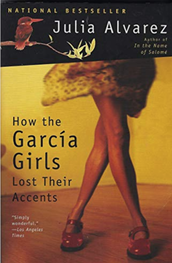 Alvarez, Julia. How the García Girls Lost Their Accents. New York: Plume, 1992 (1991). A lovely and memorable book. In a formal sense, Alvarez tells this story in reverse chronological order: Part I portrays 1989-1972; Part II, 1970-1960; and Part III, 1960-1956. In reality, however, she may feel free to flit from this event to that so that all time periods seem of the same era. What the form accomplishes may be that the author begins her saga with when this disenfranchised family from the Dominican Republic must flee to the US, a turbulent period for her country and her family. Then we slowly work our way back in time, to end with the García family’s halcyon days just prior to the purge: a big house with servants, aunts, uncles and cousins living next door. A life they must sacrifice when they move north, where others make fun of their accents (until they expunge them from their lips, to survive). The day the Dominican police come searching for their father who has stealthily hidden in a secret compartment behind the wall of the master bathroom. Some chapters are told from the third-person, but many are shared by way of first-person through the eyes one of the four titular sisters. Each has her own voice, her own personality. The novel ends with a quiet story in which one sister invades the coal shed where she finds a mother cat and her kittens. The girl steals one of the kittens and names it Schwartz, perhaps after FAO Schwartz toy store in New York, from which the García father has brought his daughters various trinkets to play with. The cat becomes a metaphor, a nightmare the woman continues to have in adulthood: “There are still times I wake up at three o’clock in the morning and peer into the darkness. At that hour and in that loneliness, I hear her, a black furred thing lurking in the corners of my life, her magenta mouth opening, wailing over some violation that lies at the center of my art” (290). Wow, what a shouted whisper of an ending! Coming Next: TUES: A Writer's Wit | Karen Armstrong WEDS: A Writer's Wit | Georgia O'Keeffe THURS: A Writer's Wit | Chinua Achebe FRI: My Book World | Casey McQuiston, Red, White, and Royal Blue
Coming Next:
FRI: My Book World |Julia Alvarez, How the García Girls Lost Their Accents TUES: A Writer's Wit | Karen Armstrong WEDS: A Writer's Wit | Georgia O'Keeffe THURS: A Writer's Wit | China Achebe
Coming Next:
THURS: A Writer's Wit | Ivan Turgenev FRI: My Book World | Julia Alvarez, How the García Girls Lost Their Accents
Coming Next:
WEDS: A Writer's Wit | Margaret Mitchell THURS: A Writer's Wit | Ivan Turgenev FRI: My Book World | Julia Alvarez, How the García Girls Lost Their Accents
MY BOOK WORLDMoshfegh, Ottessa. McGlue. New York: Penguin, 2019 (2014).
A rough little book, this. And one that encapsulates a man’s short life within the span of 145 pages. But is it set in the 19th century? It would seem so: no cars, no televisions, no phones. Only horse and cart, books, bars, and whores for entertainment. Is it about sailors? Would seem to be: McGlue, a young man, is at sea much of the time, at sea with regard to his life, accused of the murder of his best mate, Johnson. Yet he can’t recall; a certain blow to his head in a brawl keeps his memories at bay, even while he awaits in prison—without drink, which he misses terribly. Does the book have a homophobic tinge to it, or is it merely a representation of a sailor’s life in the 19th century—a time in which McGlue refers to the cabin boy as a fag or fagger? Is this slim tome Moby Dick (sans the whale) compressed into a story Melville couldn’t tell or couldn’t have gotten published in his time? Yet I’m also mystified by McGlue’s use of language. At first, it seems readers have been transported into 19th-century Massachusetts, but the author can’t decide whether McGlue is an uneducated galoot or a literary scholar. At one point, he proclaims, “. . . just anything but not to have to be here, sitting, lying down with myself like this” (64). Oh, one thinks, his scant schooling has remained intact. He has conjugated correctly the verb for reclining. Fine, but McGlue is not consistent. A few pages later he says, “I just lay down, cold as it is, until Dwelly disappears” (71). As a commoner, has he backslid into conflating the verb “lie” with its cousin “lay”? Perhaps, you say, the author is portraying McGlue’s unpolished education: his battered brain retrieving the correct verb only some of the time. Okay. But what about this example? At one point, McGlue remembers to employ the subjunctive mood, signaling the hypothetical nature of a situation: “If he were here I’d throw an arm around him, pat his head and thank him” (107). Most uneducated would just say, If he was here. Several sentences down, McGlue says, “Before me was a gentlemen . . .” (107). Why does he use the plural instead of “gentleman?” Is it an antiquated linguistic quirk I’m unaware of, or is he once again attempting to be blue collar when his earlier instinct is to be more erudite? Some may wonder why I would belabor this issue, but I continue to be puzzled. Are McGlue’s inconsistencies genuinely his, or do they belong to the author? Does she have an adequate grasp of her characterization of him, of the language? If she’s unsure about McGlue’s usage, then what does it say, on the whole, about her story? Which, by the way, is terribly engrossing, a mini-dip into what an 1800s “sea shanty” might have been. Because whatever else the novella may be, it seems to delve into the love and affection two men have for one another at a time in which matie Johnson has no proper way for him to express his carnal desires for McGlue. And the conflict ends in death . . . for both. I think. Coming Next: TUES: A Writer's Wit | Jean Chatzky WEDS: A Writer's Wit | Margaret Mitchell THURS: A Writer's Wit | Ivan Turgenev FRI: My Book World | Julia Alvarez, How the García Girls Lost Their Accents
Coming Next:
FRI: My Book World |Ottessa Moshfegh, McGlue TUES: A Writer's Wit | Jean Chatzky WEDS: A Writer's Wit | Margaret Mitchell THURS: A Writer's Wit | Ivan Turgenev
Coming Next:
THURS: A Writer's Wit | Lois McMaster Bujold FRI: My Book World | Ottessa Moshfegh, McGlue |
AUTHOR
Richard Jespers is a writer living in Lubbock, Texas, USA. See my profile at Author Central:
http://amazon.com/author/rjespers Archives
June 2024
Categories
All
Blogroll
Websites
|
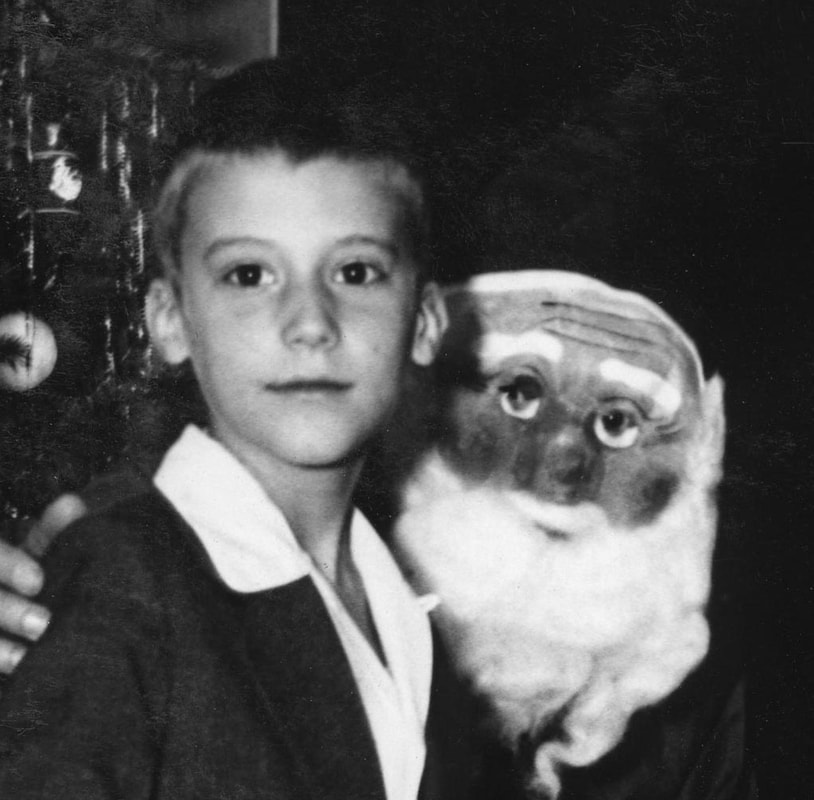

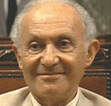







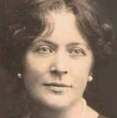





 RSS Feed
RSS Feed